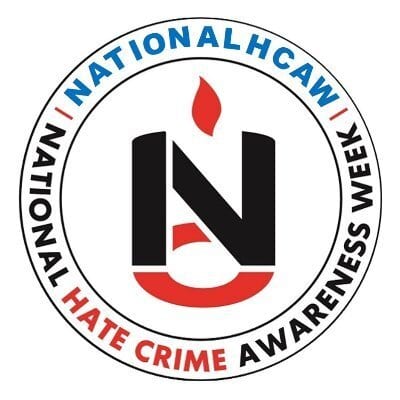
National Hate Crime Awareness Week takes place every October in the UK with the aim to raise awareness of the impacts of hate crime and how to tackle it. In this blog Media and Communications Officer, Holly Beattie, talks about community power as a tool for tackling hate crime.
Discrimination of any kind including ableism, racism, sexism, homophobia and transphobia can all have negative impacts on our health. This can include facing regular social and economic barriers due to stigma or lack of knowledge of accessibility needs, and not feeling safe. The direct impacts of experiencing a hate crime or consistent discrimination can also lead to mental health problems and poorer physical health.
We know that people living in areas experiencing the highest levels of disadvantage live fewer years in good health. We also know that people who share specific characteristics are more likely to experience health issues. For example, people who identify as LGBT+ are more likely to experience poor mental health, and rates of infant and maternal mortality, cardiovascular disease (CVD) and diabetes are higher among black and South Asian groups.
A hate crime is a criminal offence which is motivated by a characteristic of the victim such as their race or sexuality. Whilst there are usually many other social, economic and political factors which contribute to negative health outcomes for certain communities, the two are linked in many ways.
Our Active Communities funded partner Gypsy And Traveller Empowerment For Hertfordshire (GATE Herts) conducted a survey in April 2021 in relation to the proposed Police, Crime, Sentencing and Courts (PCSC) Bill. In the survey, 94.7 per cent of respondents reported witnessing more hate crime/speech since the introduction of the proposals in the Bill.
The life expectancy of Gypsy and Traveller people in England and Wales is ten to 12 years less than that of the non-Traveller population. This inequality is driven by factors which contribute to our health such as access to education, good quality housing and community power. In the survey by GATE Herts, 92 per cent of respondents felt there is insufficient provision available to nomadic Travellers on transit sites. This inequality in access to sufficient living circumstances causes mental and physical health issues for people in these communities.
One way in which hate crime and discrimination can be tackled is through greater community power. When communities are able to form connections and have access to resources, they are more able to have their voices heard, to utilise their skills and experiences and advocate for their rights.
In 2020, GATE Herts commissioned a report which was funded by the Ministry for Communities and Local Government (MHCLG) to examine the psychological effects of hate crime on Gypsy, Traveller and Roma communities.
Resident-led community groups are best placed to understand the inequalities they face and how to tackle them. GATE Herts is an example of how community groups are able to advocate for changes on a local and national when they have the resources to come together and tackle issues.
Josephine 0 Driscoll, GATE Herts CEO, said:
“Report Racism GRT is a hate incident reporting site and support service that is run by and for Gypsy, Traveller and Roma (GRT) communities in the UK by GATE Herts. GRT communities experience a shockingly higher degree of discrimination, prejudice and racism in their daily lives. We are working to improve reporting rates and we want hate crimes against GRT to be given the same recognition and public profile as other hate crimes.”
Another example of a funded partner harnessing their community power to tackle hate crime is The Centre Place, an LGBTQ+ support service in Nottinghamshire.
The Centre Place provide a safe space for young people who identify as LGBTQ+ to go and form social connections and explore different issues. Ahead of National Hate Crime Awareness Week, the project has been working with local schools to raise awareness around bullying, harassment and discrimination towards LGBTQ+ people.
LGBT+ Specialist Social Worker, Georgia Crossland, said:
“We know that 4 in 5 LGBT people who experience a hate crime/incident do not report it. Young people told us they don’t report hate crime because they are scared of experiencing more hate crimes, they will be forced to come out to their family before they’re ready, and no one will believe them.
Most young people we work with know what a hate crime is but there was very little knowledge around hate incidents such as verbal abuse and people did not know it can be reported.
We have been working with our LGBT+ youth groups to create a short video to share on social media raising awareness of what a hate crime is and the reporting processes with some young people sharing their own personal experiences.
The aims of this project are to open up discussions around hate crime with the hope to increase young people's confidence in reporting hate crimes to the police, whilst also educating the wider community through sharing the video on our social media channels.”
You can find out more about National Hate Crime Awareness Week and the importance of reporting hate crimes here.
,
